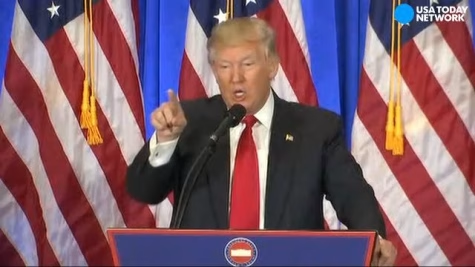
Poll Propaganda: How Corporate Media Misleads Americans
Situation Report
In a stunning post-election twist, Donald Trump has called for an investigation into Iowa pollster J. Ann Selzer after her November 1 survey showed Kamala Harris leading him in Iowa by three points. The result was a far cry from reality—Trump carried the state by a whopping 13 points.
Trump’s criticism strikes at the heart of a growing concern: how media-driven polls shape public perception and influence voter morale. “She knew exactly what she was doing,” Trump declared on his Truth Social platform. He accused Selzer and her affiliated media outlet, the Des Moines Register, of sowing distrust at a critical time.
Selzer’s departure from political polling has sparked debate. She released a 19-page review of her miss, admitting, “I’ll continue to be puzzled by the biggest miss of my career.” However, the review offered no definitive explanation for why her poll results were so far off.
The Problem with Polls
Selzer is widely regarded as one of the country’s top pollsters. Her reputation rests on years of accurately gauging public opinion in key battlegrounds. Yet, this time, her poll gave Democrats false hope and left Republicans outraged.
“Nothing is more rewarding than figuring out what went wrong,” Selzer wrote, admitting that overconfidence may have played a role. But Trump’s camp isn’t buying it. Spokesman Steven Cheung blasted Selzer, saying she “beclowned herself” with what he described as a deliberate attempt to mislead the public.
The Des Moines Register defended Selzer, noting that no single factor explained the disparity. Executive Editor Carol Hunter claimed that polling is a “science of estimation,” emphasizing its inherent limitations.
Media Manipulation or Honest Error?
Polls do more than predict elections—they shape them. When surveys show a candidate surging or slipping, it impacts donations, turnout, and even voter confidence. Trump’s claim that Selzer’s poll represents “possible election fraud” highlights the growing distrust many Americans feel toward corporate media.
Selzer’s poll isn’t the first to be wildly inaccurate. Critics argue that polling errors often favor one side of the political aisle, creating a pattern that erodes public trust. “These polls aren’t just predictions—they’re propaganda,” said one Trump ally, who pointed to the discrepancy between pre-election narratives and election results.
The poll showing Harris ahead could have demoralized Trump’s base or energized Harris supporters. Instead, Iowa voters turned out overwhelmingly for Trump. Why? Many believe the media’s attempts to shape perception backfired, reinforcing skepticism about “mainstream narratives.”
The Bigger Picture
The Selzer controversy underscores a deeper problem. When trusted pollsters fail spectacularly, it raises questions about bias, methodology, and intent. “It’s not just about bad data,” one commentator noted. “It’s about the damage these polls do to democracy when people stop believing in their integrity.”
Trump’s call for an investigation into Selzer may never materialize, but it highlights the need for accountability. As Selzer herself admitted, “Science has a way of periodically humbling the scientist.”
But for many, this isn’t about humility—it’s about honesty. And in a media landscape rife with misinformation, Americans are left wondering: was this a mistake, or something more?
